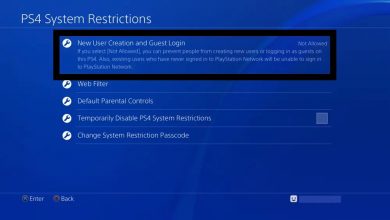Managing Buyer Disputes the Right Way When Selling Your Car

Selling a car can be an exciting experience, but it can also bring a lot of anxiety. After all, you want to make sure that the buyer is satisfied and that you don’t encounter any issues with the sale.
Unfortunately, disputes with buyers do happen, and it is important to know how to manage them the right way. Whether it is a disagreement over the condition of the car or an issue with payment, there are certain steps you can take to ensure that the dispute is resolved quickly and fairly.
This article will provide you with tips on how to handle buyer disputes when selling your car so that you can protect yourself and ensure a successful sale. Read on to learn more!
Be Upfront and Transparent With Your Buyer
When selling your car, being upfront and transparent with your buyer is the most important step in managing disputes or issues. By being transparent with your buyer about the condition of the car, you are setting realistic expectations for them and offering a level of protection for yourself by ensuring both of you know exactly what you’re buying and selling.
Before any sale or purchase is finalized, it is crucial to make sure all forms are accurately filled out and all conversations are documented as soon as possible. Additionally, it is important to provide buyers with any relevant car history information such as maintenance records or reports on any prior damage that needs to be repaired. This allows them to make an informed decision when purchasing your car on whether they feel comfortable making the purchase.
By providing buyers with clear details about the car during the sales process and following up on any documents or paperwork that may need to be exchanged post-sale, you can ensure a smooth transaction while mitigating potential buyer disputes in the future.
Have a Solid Bill of Sale
It’s recommended that you draft up a bill of sale when selling your car. A Bill of Sale is a legal document that details the specifics of the sale. It should include information such as the amount paid, descriptions of the car, seller/buyer details, and signatures from both parties. With a bill of sale in hand, any potential disputes down the road are much easier to manage and handled in a timely manner.
If there are any issues with how the vehicle performs from when it was sold (or if there is any damage that has been done) after ownership has been transferred, it’s important to document this in writing too. Make sure to provide details on date, time, and witness information so that you can protect yourself against any potential disputes that come about later down the road. This is where having a Bill of Sale becomes so important it can protect you from any potential buyers who may not be honest or truthful about what happened after they took ownership.
Handle Complaints Professionally
No matter how experienced you are in selling cars, you’ll likely encounter buyers who dispute their purchase in some way. To make sure the situation doesn’t escalate, it’s important to remain professional and handle complaints with care.
The following steps will help you manage buyer disputes the right way:
- Listen: Take the time to really listen to what the buyer has to say and try not to get defensive.
- Respond: As soon as possible, politely let the buyer know that you have heard their concerns and are willing to work toward a resolution. Acknowledge mistakes if need be and explain any delays in responding to their complaint.
- Negotiate: If there is something that can be done to make the buyer more satisfied with your product or service, come up with a compromise that works for both parties involved. Consider offering a refund or an exchange if appropriate.
- Follow-Up: It’s important to follow up after resolving a dispute in order to ensure that all parties have had a satisfactory outcome. Check back with the buyer periodically over time to see if they are still happy with your solution and offer additional support if needed.
Offer a Reasonable Solution
Sometimes, buyers might bring up issues that you may not have anticipated or thought to consider during the negotiation stage. So, when this happens, it’s important to be prepared and react quickly and professionally with a reasonable solution.
When it comes to resolving buyer disputes, there are a few things you should keep in mind:
- Be honest and transparent about the situation.
- Have a plan of action for how you will address the issue.
- Take responsibility for any mistakes made and make sure to communicate them clearly to the buyer.
- Offer an equitable resolution that meets both parties’ needs.
By making sure that both parties are satisfied with the outcome, you can build trust and create a positive rapport between yourself and the buyer. This will go a long way in getting repeat customers in the future!
Know Your Rights and Responsibilities
You’ve made a sale, and that’s a cause for celebration. But don’t let your guard down just yet – it’s important to understand the legal framework of your transaction, including your rights and responsibilities both as the seller and the buyer.
Seller Responsibilities
As a seller of a car, you are legally responsible for any issues with the car that arise once it has been sold. This includes any latent or hidden defects or problems with the car that you were aware of but did not disclose before selling. If such issues arise, you may be legally liable to remedy them at no cost to the buyer in some cases.
Buyer Responsibilities
The buyer also has certain responsibilities they must adhere to in order to maintain their rights as customers. For instance, they must provide proof that their car is properly insured and registered in accordance with applicable laws in order for you to honor any warranty claims they make.
By knowing your rights and responsibilities, you can ensure that any disputes or issues are handled properly so that everyone involved is satisfied with the results. This will help protect both parties from potential disagreements over who is liable for what after the sale is complete.
A Better Way to Sell Your Car and Avoid Disputes
The best way to avoid any buyer disputes is through prevention. Here are some tips to ensure the sale of your car goes smoothly:
- Make sure you provide buyers with complete information about the car, including any necessary repairs or maintenance that needs to be performed.
- Have a pre-purchase inspection completed to test the car’s mechanical and structural condition before you list it for sale.
- Take photos of the car before and after the sale and keep them for your records in case a dispute arises later.
- Have the buyer sign a written agreement detailing the terms and conditions of the sale, such as when payment is due, what happens if there are issues with the car, etc.
- Have a third-party mediator present during negotiations and the physical transfer of title and keys if you need an unbiased opinion regarding any conflicts that arise between you and the buyer after the sale.
By following these steps, you’ll have peace of mind that everything is taken care of properly, and buyers will know that they’re getting an accurate description so there won’t be any surprises later on down the road.
Many people selling their car won’t encounter any disputes or issues with buyers, but if they do it’s important to know how to handle them the right way. A good start is to remain calm and professional and to focus on problem-solving. This means being willing to negotiate and make compromises so both parties feel their needs are met.
It’s also wise to take the necessary precautions before any sale by researching the buyer, checking their credentials, and ensuring the payment is secure. Doing this can limit any potential disputes and help ensure a smooth and successful sale.
So, if you’re looking to sell your car, keep these tips in mind. With the right techniques and precautions, you can help ensure a hassle-free sale and a positive experience for both parties.
Read Next: Best GTA Helicopters of All Time



